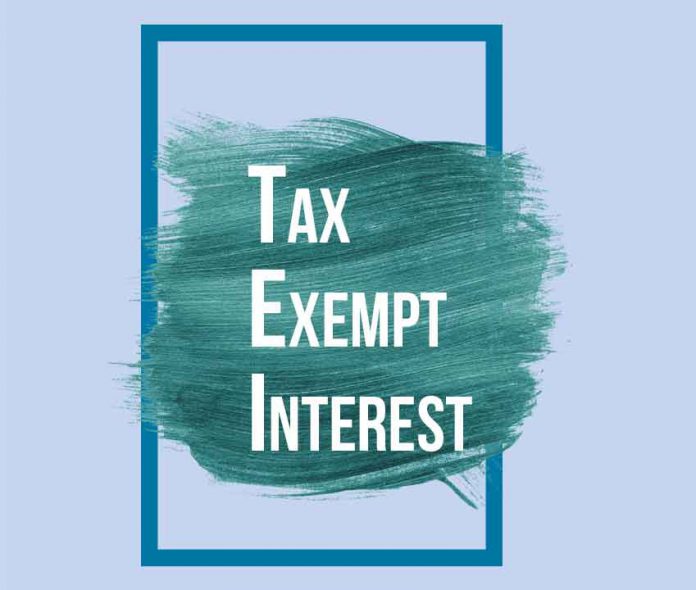As the name suggests, tax-exempt interest is an interest income that is not considered taxable under the Indian Income Tax. In some cases, there might be a possibility that the tax-exempt interest earned by you may limit the other income tax exemption limit.
Let’s understand about Tax-exempt Interest
Any form of interest income that is not a part of your total income for this financial year, and classified as tax-exempt interest under the Income Tax Act is considered as Tax-Exempt Interest. The income tax authority has created several provisions related to tax-exempt interest under the Income Tax Act. Since the tax-exempt interest income tax is not considered as taxable income, it will not be taken under gross total income while computing tax.
Section 10 of the Income Tax Act mentions all the special cases when the income from interest is exempt from income tax and if there is any other interest that you have earned on specific investments that are not mentioned under this provision. This interest will then be subject to income tax.
You should always remember that all the types of interest you earn are not considered tax-exempt interest.
Benefits of Tax-exempt Interest
Section 10 of the Income Tax Act also defines individuals who are not eligible to pay any tax on income that is earned from tax-exempt interest.
It includes interest and premium received on tax-free securities or certificates, interest on saving account, etc.
If you are a non-resident, you can also get the benefit of tax-free interest. The government has notified in the official gazette that interest on securities and bonds held by non-residents is also exempt from tax.
Tax-exempt interest also includes the premium received on redemption of these bonds as well as any interest on a bank account and interest on savings certificates issued before 1 June 2002 to the non-resident.
Details about Tax-Exempt Interest
A person should report his tax-exempt interest income while filing income tax returns under the head “Income from other sources”.
Some Tax-Exempt Interest income is following;
- Interest earned from tax-free bonds is exempt from tax and the tenure of these bonds is usually 10 to 20 years.
- Interest on PPF is fully exempted from tax without any limits under Section 10(11) of the Income Tax Act 1961.
- Under section 80TTA of the Income Tax Act, interest up to Rs 10,000 earned on savings account in a financial year is exempt from tax.
- Under Section 80EE of the Income Tax Act, interest paid for a home loan can be claimed.
- Interest up to Rs 40,000 earned on fixed deposits (FDs) in a financial year is exempt from tax.



















